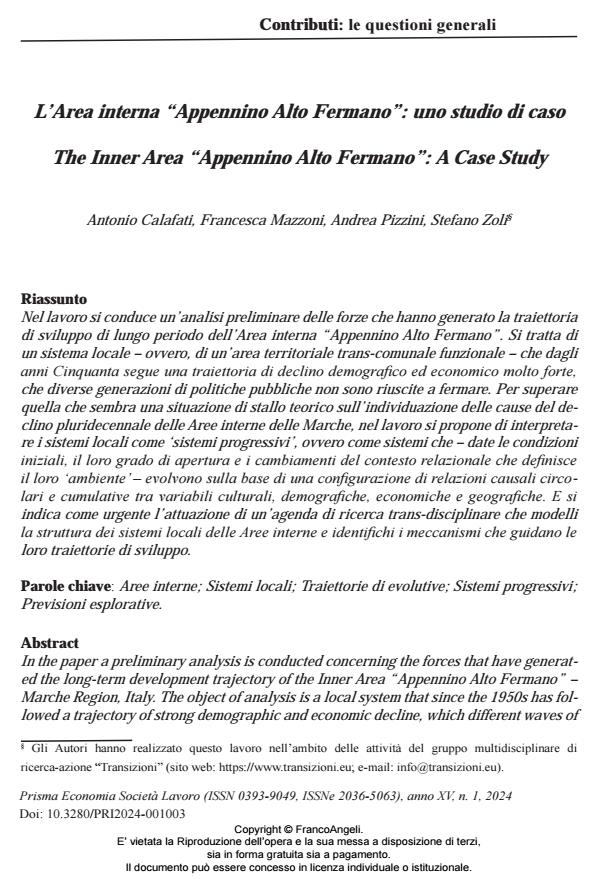The Inner Area “Appennino Alto Fermano”: A Case Study
Journal title PRISMA Economia - Società - Lavoro
Author/s Antonio Calafati, Francesca Mazzoni, Andrea Pizzini, Stefano Zoli
Publishing Year 2024 Issue 2024/1
Language Italian Pages 25 P. 44-68 File size 1280 KB
DOI 10.3280/PRI2024-001003
DOI is like a bar code for intellectual property: to have more infomation
click here
Below, you can see the article first page
If you want to buy this article in PDF format, you can do it, following the instructions to buy download credits

FrancoAngeli is member of Publishers International Linking Association, Inc (PILA), a not-for-profit association which run the CrossRef service enabling links to and from online scholarly content.
In the paper a preliminary critical reflection upon the Marche Region’s Inner areas is conducted with regard to the following four issues: the long-term socio-economic decline they have experienced; the consistency between the procedure used to fix their boundaries and that suggested by the local development paradigm that has consolidated in Italy ; the dense and multidimensional relationships between the Inner areas and the rest of the regional territory; the role of the major towns of the Inner areas in ensuring access to a satisfying ‘degree of urbanity’ to the local population. The Authors argue that the available empirical evidence suggests a deep change in the methodological and theoretical foundations of the Marche Region’s Strategy for the Inner areas. The way in which the four issues just listed have been addressed since the 1950s is an obstacle to the design of effective local regeneration strategies. The importance – and urgency – to reformulate the Inner areas’ development strategies of the Marche Region is magnified by the fact that they cover about the 44% of the regional territory.
Keywords: Marche Region; Inner areas; Local systems; Development trajectories.
Antonio Calafati, Francesca Mazzoni, Andrea Pizzini, Stefano Zoli, L’Area interna “Appennino Alto Fermano”: uno studio di caso in "PRISMA Economia - Società - Lavoro" 1/2024, pp 44-68, DOI: 10.3280/PRI2024-001003